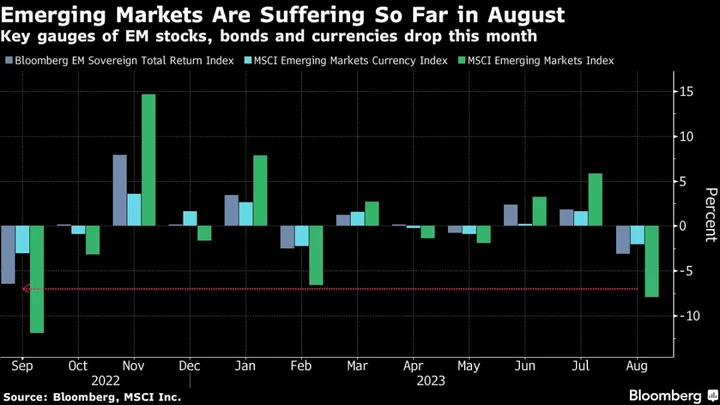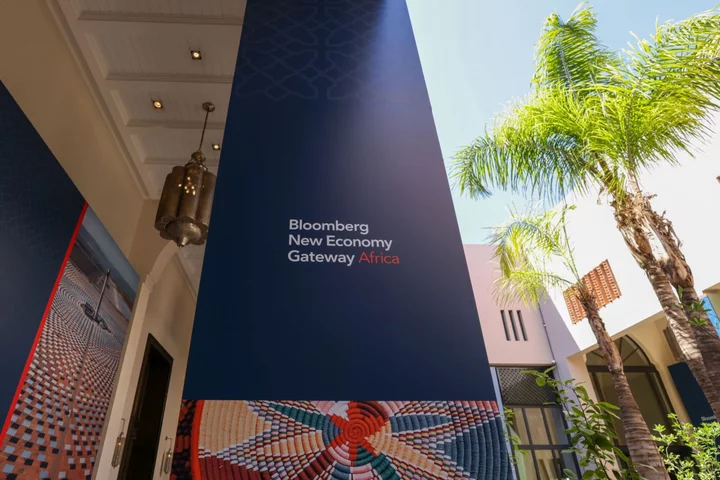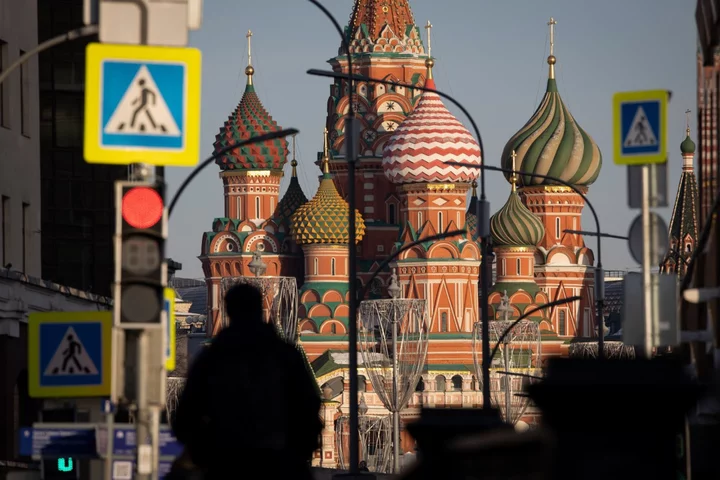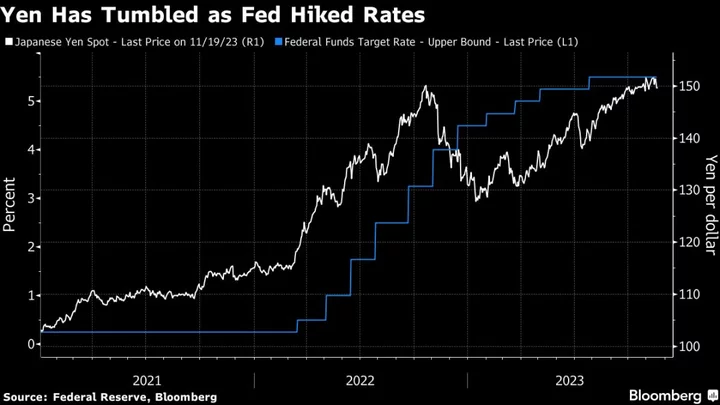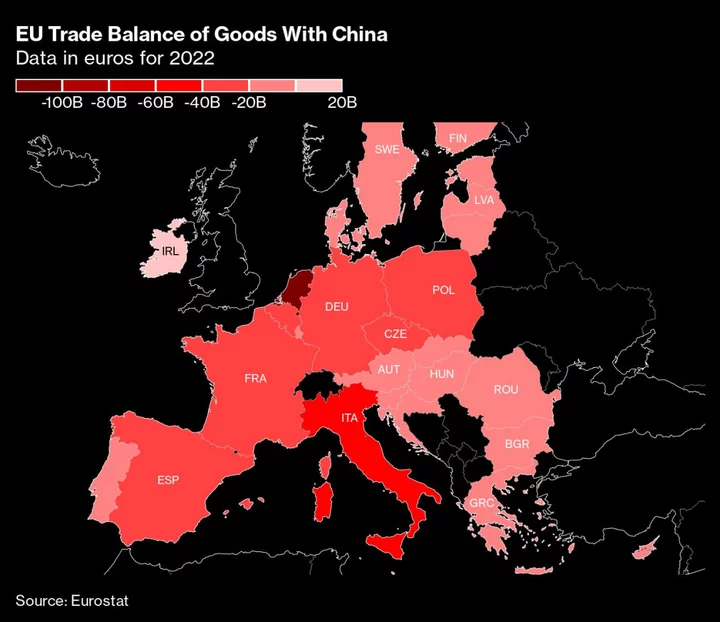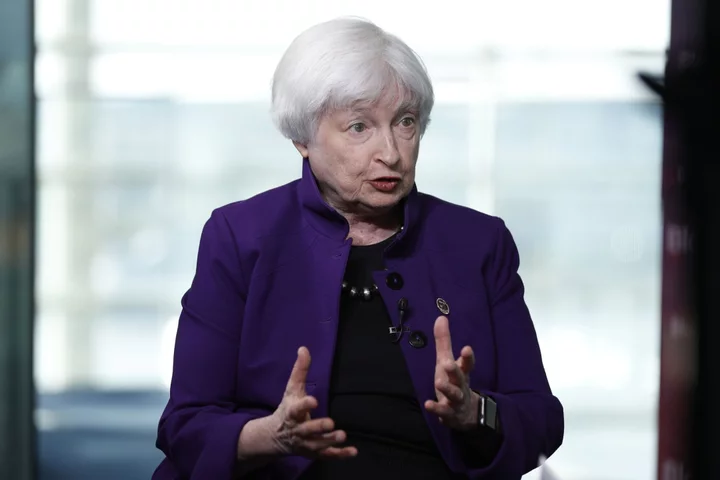August is turning out to be chaos for emerging markets.
Bonds and stocks from developing economies are poised for their worst monthly losses since last September after Nigeria’s central bank revealed it has less reserves than estimated, an outsider won primaries in Argentina and a presidential candidate was assassinated in Ecuador.
The upheaval, alongside a jump in US Treasury yields and dismal economic data in China — with the government ramping up efforts to stabilize markets last week — is forcing investors to re-examine the case for riskier assets. This time, they must acknowledge that high returns often come with high jinks.
“Welcome to emerging markets. The risks have always been more political than economic,” said Carlos Legaspy, the chief executive officer of brokerage firm Insight Securities. “It’s always a moving target.”
In the span of just a few weeks, the case for investing in developing assets has had a shakedown. Dollar-denominated government bonds have pared their 2023 rise to about 2.5% from a peak of 5.8%, according to data compiled by Bloomberg. An MSCI Inc. gauge of currencies, meanwhile, has wiped out much of the year’s early rally.
Stocks, too, are poised for the worst August since 2015 as global capital markets recalibrate.
The declines are a reminder of the frailty of emerging-markets rallies, which can crumble in an instant with volatility raising the assets’ risk profile, potentially triggering even more selling. The Cboe Emerging Markets ETF Volatility Index is rising in August for a second-straight month.
For Mila Skulkina, a portfolio manager at Lord Abbett & Co., one way to mitigate risks is to focus on investing in countries, especially in Latin America and the Middle East, that are embracing market-friendly change.
“The emerging-markets investment category of today is not the same as it was 20 years ago,” she said. “Many systemically important emerging-market countries have successfully implemented market-friendly reforms and policymakers had the resolve to stick to those reforms in difficult times.”
Domestic Risks
Hardly anywhere, however, has the outlook been as opaque as in Argentina and Ecuador in recent weeks. The two serial-defaulting countries are both in the midst of presidential elections, with investors left guessing.
In Argentina, overseas bonds have tumbled since Javier Milei unexpectedly led in a closely watched presidential primary vote on Aug. 13, with vows to abolish the central bank and dollarize the economy.
The apparent rejection of a market-friendly government in the country is enough for Insight Securities’ Legaspy to recommends moving capital out of Argentina.
Instead, he prefers investing in Turkey, where recently reelected President Recep Erdogan handed the reins of the economy to an advocate of conventional policies, likely signaling a shift from measures that have been blamed for galloping inflation and an exodus of foreign money.
“Both are basket cases,” he said,” but one is deteriorating more and the other seems to be turning back into orthodoxy.”
Ecuador, meanwhile, also faces a less-than-certain future. The nation votes Sunday in snap general elections, less than two weeks after a candidate was assassinated.
The government’s dollar debt staged an uncomfortable rally after the tragedy, evidence that some on Wall Street expect the nation’s next leader to address a surge in crime and steady the economy.
“In Latin America. the focus is shifting from the economy to security, said Mauro Favini, a senior portfolio manager at Vanguard. “We’re seeing politicians are starting to shift away from populism and into more security concerns.”
Investors in other regions are also working to make sense of recent revelations. In Nigeria, the naira lost an essential source of support as the central bank’s long-delayed financial statements revealed that effective foreign-exchange reserves were much lower than previously disclosed.
Russia, too, surprised analysts by reinstating capital controls and raising interest rates sharply.
What to Watch
- Brazil will release mid-August inflation data, which is expected to offer clues on on the central bank’s next monetary policy move
- Mexico will publish minutes from the August meeting, which Bloomberg Economics expects will reiterate that policymakers don’t anticipate any more hikes and will hold the rate for a prolonged period
- Central banks in South Korea, Sri Lanka and Indonesia will announce their rate decisions
- China’s banks are expected to cut prime rates in tune with the People’s Bank of China’s move. There are likely 15-basis-point reductions in the one-and five-year quotes, according to economists surveyed by Bloomberg
- Turkey’s central bankers are expected to deliver a third successive hike on Thursday, with the revamped Monetary Policy Committee likely lifting the key policy rate to 19.5% from the current 17.5%, Bloomberg economists say
--With assistance from Selcuk Gokoluk.

